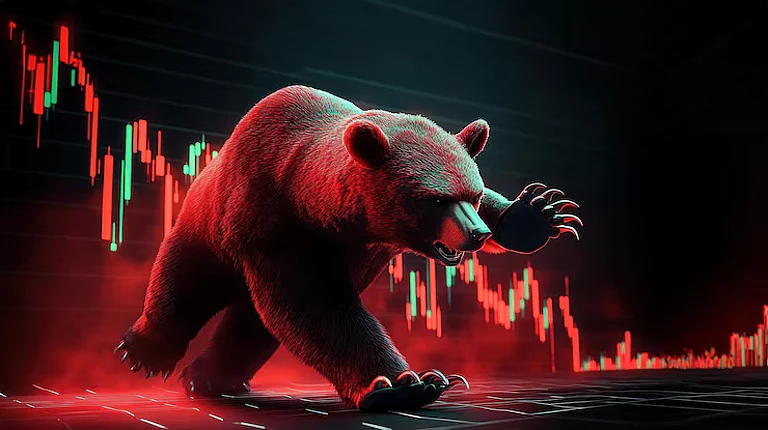The start of October hasn't been quite well for Indian stock markets. This week alone, markets have taken a sharp downturn, with both benchmark indices—BSE Sensex and NSE Nifty—plummeting by over 4 per cent.
On Friday, the markets did try to bounce back but ended up falling by roughly 1 per cent with declines led by financial services, oil and auto stocks.
While D-street players largely believe that the bearish sentiment prevailing in the market is owing to FIIs (Foreign institutional investors) shifting their cash flow to China and the escalating Israel-Iran tensions, there's more to what is causing the bloodbath in the stock market. Earlier this week, Sebi (Securities and Exchange Board of India) dropped some fresh rules around index derivatives, which could potentially slash trading volumes by 30-40 per cent.
Discount brokerage firm Zerodha has already stated that a likely cut in expiry days (one per exchange per week) can hit 60 per cent of Futures and Options trade and 30 per cent of their overall orders.
Currently, a lot doesn't seem to go well for the markets and all eyes are now focused on DII (domestic institutional investors) action to see if they can turn the market sentiment around. So far in October, FIIs have largely remained net sellers after a brief period of net buying.
DIIs to the rescue?
Undoubtedly domestic investors have started taking a lead recently, helping benchmarks in counterbalancing the foreign outflows. This has eventually led to a structural shift in the market indicating reduced reliance on FII flows.
"The question is no longer about whether DIIs can "rescue" the market, but rather how much stronger the market will grow as domestic investors continue to deepen their participation. Any reversal in FII flows could potentially provide a further boost to the market, but the foundation has clearly been laid for a more resilient, domestically driven stock market," said Anirudh Garg, Partner and Fund Manager at Invasset PMS.
In past years, FIIs have predominately remained net sellers. However, this year did witness a reversal in the trend. According to Capitaline, FIIs' net investment stood Rs 1,00,609 crore so far this year.
On October 3, FIIs net sold shares worth Rs 15,243 crore, while DIIs net purchased shares valued at Rs 12,914 crore.
As per Garg, the ongoing selling pressure from FIIs is driven by a mix of factors, including global uncertainties, risk-off sentiment and shifting macroeconomic conditions, such as tightening monetary policies in developed countries.
What now?
Analysts are already cautious for the upcoming week as geopolitical tensions continue to rise. According to a report from Elara Securities, investments in India-focused funds have slowed down to $107 million, compared to an average of $300 million over the past two months.
The significant selling by FIIs in India over the last three days might signal that they are looking to shift their investments back into China once the markets there reopen.
"While there may be a pause or slight rebound after the recent slide, the overall bias will remain negative unless Nifty decisively reclaims the 25,600 level. Key sectors such as IT, metal, and pharma are showing resilience, while others are facing selling pressure during rallies," said Ajit Mishra – SVP, research, Religare Broking Ltd.
Siddhartha Khemka, Head - Research, Wealth Management, Motilal Oswal Financial Services expects the market to witness volatility in the near term with stock-specific action as the companies will announce pre-quarterly updates.
Investor attention will also be on interest-sensitive stocks owing to the upcoming RBI policy meeting. While the D-Street isn't anticipating a rate cut, the recent changes in the RBI policy committee might result in some important announcements.
































